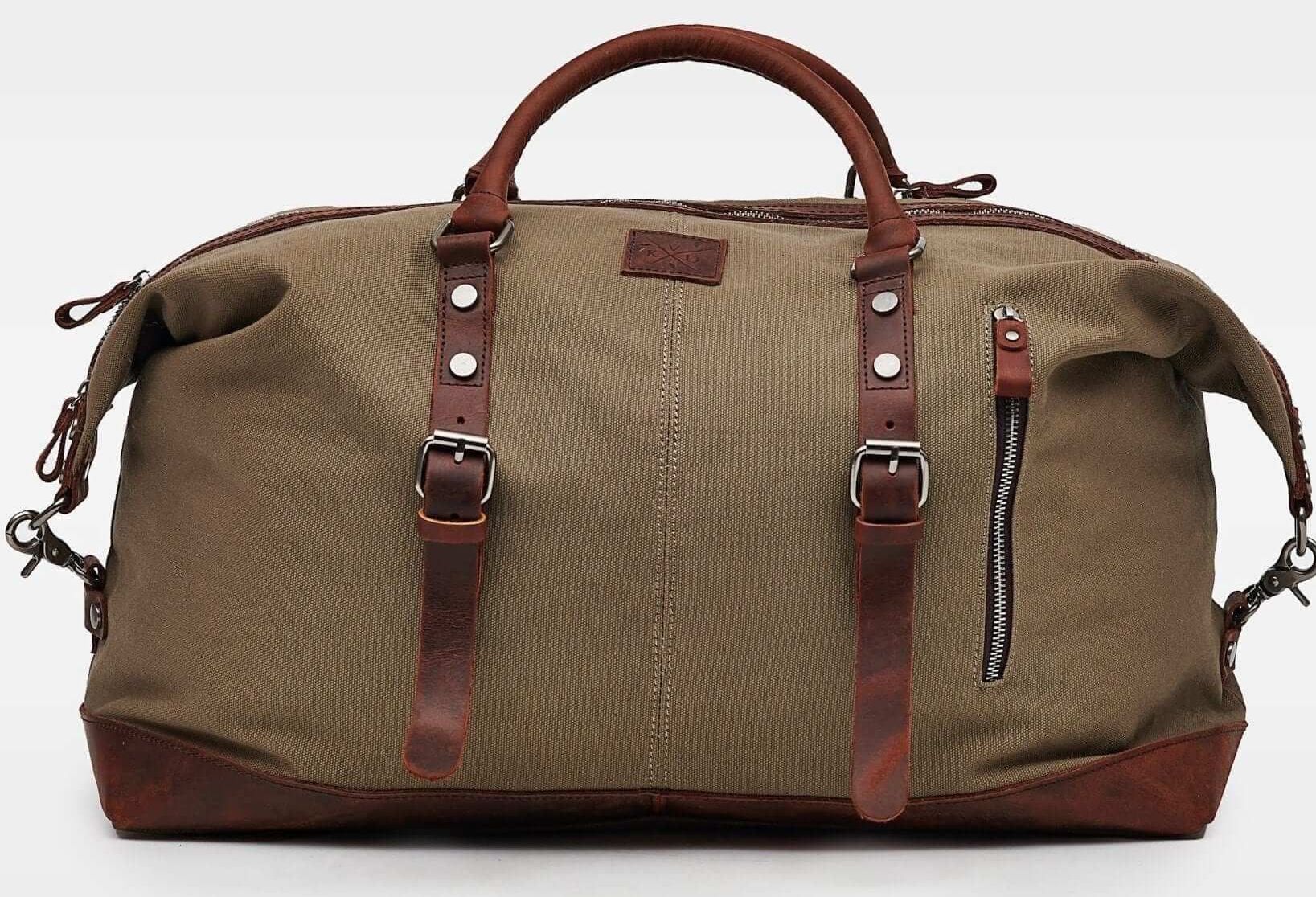The art of packing for your safari
What to bring and what to leave behind!
You're excited. You're coming to Africa to spend time with us at Feline Fields, but a conundrum presents itself... You have a big wardrobe and a small bag. How are you going to distil the one into the other? What goes and what stays? What will you need and what is superfluous? Let's delve into the weird and wonderful world of packing for an African safari and give you some pointers...

The first question that needs answering is the bag. Why does it have to be so small? When you've got 14 large travellers and their luggage piling into a small plane it's not hard to do the maths where both weight and dimensions are concerned. As a result, there are definite rules and recommendations regarding your luggage.
The good news is that most small plane operators allow up to 20kg (44lbs) of luggage, including hand baggage, onto the connecting flights between camps. The trick is the type of bags that are allowed and the general dimensions of those bags. Your luggage should have soft sides and be easily squished into small spaces. So, a backpack or duffel style of bag is the order of the day. As a guide, it should be in the following ballpark where dimensions are concerned:
30cm (11,8 inches) wide
35cm (13,8 inches) high
70cm (27,5 inches) long
A good tip here is that some airlines request that soft bags have firm, flat bottoms for luggage conveyor purposes and if your bag doesn't have one, you may have to have it wrapped pre-flight with a temporary cardboard base. So, check with your airlines before leaving home regarding their rules for soft sided bags.
Another good tip is to get a bag that's strong enough to withstand rough handling. Believe us, at various points during your trip your bags will be variously thrown, shoved, dropped, wedged, nudged, kicked, and otherwise jostled into position by the luggage handling folks behind the scenes in airports across the world. Concealed zips are a good idea for this reason. And strong seams/webbing.
You've got your bag. Now what?
It's time to organise your gear. That's what. Let's start with what you're NOT going to need on safari. You are not going to need high heeled shoes, designer gowns, suits, ties, dress shirts, formal trousers, bling, and lots of makeup. You can ditch the hair straighteners, curling irons, and hairdryers too. You need to go "au naturel" in the African wilderness!
When it comes to clothing, there are a few simple guidelines to follow. The first relates to colours. The last thing you want to do in the bush is stand out. So, opt for neutral, earth tones like khaki (the colour of choice when it comes to safaris), brown, beige, taupe, cream, grey, muted greens, etc. You can add some pastels - blue and pink work well. Try to avoid too many dark colours, especially black and blues, as these can attract biting insects that mistake you for a buffalo!
The second clothing guideline relates to material and fit. In the bush we dress for comfort, not fashion. So loose and cool is generally the way to go for most of the year. That said, thanks to the advances in technology where fabric is concerned, and the advent of lightweight, breathable stretch fabrics, you can go skin-tight in comfort these days.
Notice we said "most of the year" in that previous paragraph? That's because in our southern hemisphere winter, from June to August each year, things can get rather chilly and actually, downright cold. While the days are generally pleasant and warm (and definitely shorts and T-shirt weather) the early mornings and evenings can be biting, especially when you're on an open game viewing vehicle. So, you will need long trousers, closed shoes, a puffer jacket or fleece, some warm sweaters, a beanie hat, scarf, and gloves. Layered clothing is best for this time of year.
Packing it in
Here's an idea of a good selection of clothing and other items to put in your safari bag...
Ladies
- Cotton T-shirts (three or four)
- Tank tops (two or three)
- String strap vests (two or three)
- Selection of shorts, cargo pants, long trousers, yoga pants
- Comfortable bras/sport bras (safaris can be bumpy!) and undies
- A couple of long-sleeved tops/sweaters
- A lightweight long-sleeved shirt to wear over a tank top/string strap top
- Comfortable walking shoes/boots and socks
- Flips flops/flat sandals
- Swimsuit and sarong
- Pashmina and lightweight scarf
- Warm jacket for morning and evening game drives (winter months)
- Gloves, scarf, and beanie hat (winter months)
- Sunscreen/insect repellant
- Sunglasses and sun hat
- Binoculars
- Kindle/iPad/book/smartphone
- Camera gear
- Toiletries
Gentlemen:
- Cotton T-shirts (three or four)
- Selection of shorts, cargo pants, long trousers
- Comfortable underwear
- A couple of long-sleeved tops/sweaters
- Lightweight long-sleeved shirts
- Comfortable walking shoes/boots and socks
- Flips flops/flat sandals
- Swimsuit
- Warm jacket for morning and evening game drives (winter months)
- Gloves, scarf, and beanie hat (winter months)
- Sunscreen/insect repellant
- Binoculars
- Sunglasses and sun hat
- Kindle/iPad/book/smartphone
- Camera gear
- Toiletries
Getting your gear into your bag really is a matter of personal preference. Some like to roll their clothing (a useful hack), some like to use travel cubes or similar luggage organisers (also an excellent option, especially for the more organised traveller!). A hot hack is to set all of your clothing out on a table or bed in "sections" and pack it section by section.
Don't forget to keep a set of clothing in your carry-on bag, just in case your airline neglects to deliver your luggage at the same time as you! And when it comes to toiletries and especially medicines, always bring a little more than you need just in case. With medicines, it's also a good idea to carry copies of prescriptions in case you are asked what things are for by customs and immigration officials. And, of course, whatever you do, don't forget your passport!
See you soon!

PO Box 250039
Wenela Ward
Maun
Botswana
Feline Fields. All Rights Reserved.
Designed & powered by: The Safari Collective
PO Box 250039
Wenela Ward
Maun
Botswana
Designed & powered by: The Safari Collective
Feline Fields. All Rights Reserved.
Designed & powered by: The Safari Collective
Feline Fields. All Rights Reserved.




